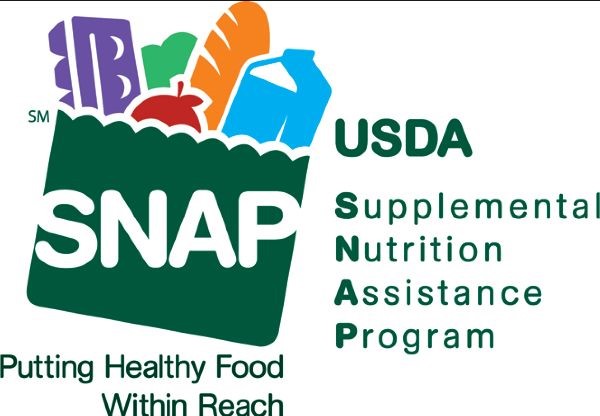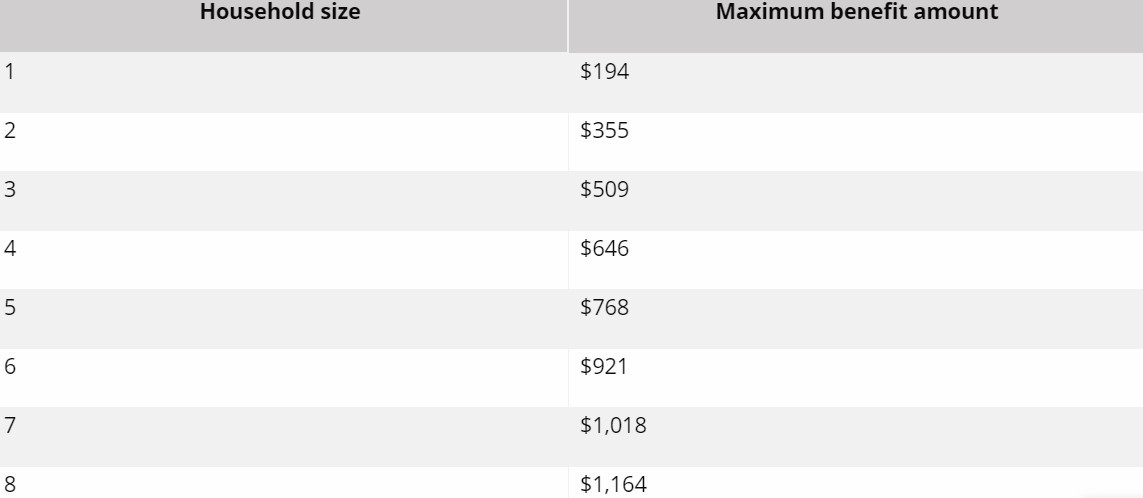Remembering 9/11, SNAP And Unemployment Benefits Updates
September 11, 2020Please see below for food assistance but first,
In remembrance of those families who lost their loved ones, and when the whole world was shaken by this attack on our liberties.
As an ex-volunteer fireman, I will #NeverForget what I witnessed on the west end
Avenue station on the 13th, 2 days after the towers were hit, as one of the last volunteers to reach, and as this was the last day for volunteers at that station. Dust everywhere, and "run" every fifteen minutes being yelled out, not knowing if the financial center was going to collapse, at the time.
While materials and bags were coming out of the rubbles most volunteers and either people from emergency services to all sorts of enforcement officers constantly yelling at people trying to take pictures, to tell them to get away from the site.
NYC was incredibly tight and united. Upon walking out of the zone, homeless were giving clothes in replacement to what we wore around ground zero, and hugs in support for those who need it the most.
NYC should always stay #United like it did the following days and months after this catastrophic event.
#NeverForget911

While the primary focus of Connecticut families for the past several months has been on health and safety, food insecurity has also been a major concern that cannot be ignored.
With many still unemployed due to the pandemic, Emergency Supplemental Nutrition Assistance Program (SNAP) benefits have played a major role in keeping many Connecticut households from going hungry.
To that end, over $16.5 million in additional SNAP benefits will be provided to thousands of state SNAP recipients on Thursday, September 17.

More than 109,000 Connecticut households are not currently receiving the maximum allowable benefit for their household size.
These emergency funds will allow eligible households to obtain the maximum allotment.
See the chart below for the maximum benefit allotment for each household. (NOTE: For households that number nine or more, add $146 for each additional person.)

An average of $153 will be transferred to the EBT cards of eligible SNAP recipients on September 17.
For further information regarding SNAP, please visit www.ct.gov/SNAP
CT Fair Housing COVID-19 Update
Addressing Clients' Needs During The COVID-19 Pandemic
September 10, 2020
What happened since September 3, 2020:
Updates on Eviction Moratorium—At present there are three eviction moratoria in place. In addition, there are several steps in the court eviction process that have NOT been stopped. It is not clear how all of these changes in the law fit together, but the Center has put together the following:
1. CDC issues moratorium on evictions until December 31, 2020: The Centers for Disease Control (CDC), a federal agency charged with protecting the public health, has announced that it has placed a moratorium on evictions throughout the United States for nonpayment of rent beginning on September 4 and continuing until December 31, 2020. The moratorium applies to tenants who are being evicted for nonpayment of rent or for lapse of time AND who present a signed declaration form to their landlord.
What should tenants do?
To take advantage of the CDC moratorium, start by reading the requirements a tenant must meet to qualify for the moratorium. Then every person over 18 in a household should fill out a declaration and give it to the LANDLORD. Information about the declaration and how to create one are also available in Spanish. In addition, there are on-line forms that can be found here and here that can generate the CDC declaration.
2. Governor extends eviction moratorium to October 1: On Thursday, August 20, Governor Lamont announced he was extending the eviction moratorium until October 1, 2020. The Executive Order states that no Notice to Quit or Summary Process complaint can be given to a tenant or filed before October 1, 2020 with certain exceptions.
What should tenants do?
A landlord is allowed to send Notices to Quit if a tenant owes rent from before February 29, 2020, the tenant has created a serious nuisance, or if the landlord plans to use the unit as their personal residence and the existing rental agreement has ended. If a tenant receives a Notice to Quit or a summary process complaint, the tenant can call Statewide Legal Services to determine if they are eligible for free legal assistance. Call 1-800-453-3320 or apply for help online.
3. FHFA and FHA extend moratorium on foreclosures and evictions for homes with FHA and FHFA backed mortgages until December 31—FHA, Fannie Mae, and Freddie Mac should not begin an eviction action until after December 31, 2020, unless the property is abandoned or vacant. In addition, FHFA, Fannie Mae, and Freddie Mac have extended the foreclosure moratorium on these properties until December 31, 2020.

What should tenants/homeowners do?
- If a tenant receives a Notice to Quit or a summary process complaint, the tenant can call Statewide Legal Services to determine if they are eligible for free legal assistance. Call 1-800-453-3320 or apply for help online. If a homeowner is served with a foreclosure complaint, they can contact the Center to sign up for an on-line meeting, answer a few short questions, and be set up with an appointment to talk to one of our attorneys.
- · TRHAP program closed for new applications: On Friday, August 28, the State’s Temporary Rental Housing Assistance Program (TRHAP) closed its call center and stopped taking on-line applications until Monday, September 14 at 8 a.m. During that time, the Department of Housing will continue to refer tenants who have completed the pre-application for assistance to housing counseling agencies to complete the application process. If you are unsure if you have completed a pre-application, you can contact trhapinfo@ct.gov. Include your name and address in the mail and the approximate date you made the application for TRHAP. It may take as long as a week to get information back from the Department of Housing.
Updates on Court Processes
- · Courts will begin issuing defaults: Beginning on September 20, Connecticut courts can begin to issue defaults in cases where the defendant (in an eviction case, the tenant) has not responded to the landlord’s court-filed complaint or an Appearance. The court will give the tenant notice that a request for a default has been filed. A default means that the tenant has lost the case and the court could issue an execution allowing a marshal to move the tenant out.
What should tenants do?
If a tenant is notified that the landlord has asked for a default because a tenant has not responded to the landlord’s court-filed complaint or filed an Appearance, tenants should fill out an Appearance form if they have not already done so and give it to the court and the landlord or the landlord’s lawyer if they have one.
In addition, tenants should read the requirements to determine if they qualify for the moratorium. If they do, then every person over 18 in a household should fill out a declaration and give it to the landlord or the landlord’s lawyer if they have one. Information about the declaration and how to create one are also available in Spanish.
n addition, there are on-line forms that can be found here and here that can generate the CDC declaration. Finally, the tenant can call Statewide Legal Services to determine if they are eligible for free legal assistance, including help with responding to the landlord’s court-filed complaint. Call 1-800-453-3320 or apply for help online.
· Connecticut Judicial Branch allows executions to be used for some summary process cases: Connecticut’s Judicial Branch announced that it would permit landlords to use executions to move out tenants who lost their summary process cases for serious nuisance, residential nonpayment evictions for nonpayment of rent on or before February 29, 2020, or for evictions where the landlord has a bona fide intention to use the dwelling as the landlord’s principal residence.
What should tenants do?
If a tenant receives notice from the court, a landlord, or a marshal that they will be moved out of their apartment through the use of an execution, the tenant should call the court that issued the execution and ask what they can do to stay in their apartment.
In addition, tenants should read the requirements to determine if they qualify for the moratorium. If they do, then every person over 18 in a household should fill out a declaration and give it to the landlord or the landlord’s lawyer if they have one. Information about the declaration and how to create one are also available in Spanish. In addition, there are on-line forms that can be found here and here that can generate the CDC declaration.
Finally, the tenant can call Statewide Legal Services to determine if they are eligible for free legal assistance. Call 1-800-453-3320 or apply for help online.
Mortgage Foreclosure
- Connecticut rates 8th in the nation with non-current loans: Despite CARES Act protections, many borrowers with government-backed mortgages from Fannie Mae and Freddie Mac are behind on their loan payments but not in forbearance plans. Among these, FHA borrowers are most likely to not be in forbearance plans with 38% of loans past due, the largest volume and share of any investor class. Private mortgage investors are least likely to grant forbearances to people who cannot pay their mortgage.
- Law days extended to October 6, 2020—Connecticut’s Judicial Branch extended foreclosure law days to October 6. As a result, any homeowner scheduled to lose title to their home as a result of foreclosure will have their right to title extended until October 6, 2020.
- Apply for T-MAP on-line: CFHA’s Temporary Mortgage Assistance Program to assist homeowners who are unable to pay their mortgage, the Temporary Mortgage Assistance Program, now has an on-line application in English. It has not yet been translated into Spanish. To apply for assistance by telephone, call 1-860-785-3111. For more information about the program, click here.
- Foreclosure advice: The Center is holding Foreclosure Advice Virtual Sessions. Homeowners facing foreclosure can sign up for advice sessions over video or phone, and get some individualized questions answered in a way that they could at our in-person clinics or through the Judicial Branch’s Volunteer Attorney Program. The program began on August 7, with 8 slots weekly and will expand if there’s enough demand from homeowners and capacity for us. Homeowners can sign up, answer a few short questions, and be set up with an appointment.
Resources for tenants and homeowners:
- Click here to understand current tenant rent relief options in Spanish and English.
- Click here to find more details in our tenant FAQ.
- Click here to understand current rights for homeowners in Spanish and English.
- Click here to understand how fair housing can protect you during the COVID-19 crisis. (Our guidance is now available in 11 languages.)
- Need to have your subsidized rent recalculated due to income loss? The Rent Recalculation Request tool can be accessed here in Spanish and English.
More COVID-19 resources can be found on our website here.
FOR MORE INFORMATION ABOUT YOUR FAIR HOUSING RIGHTS IN ENGLISH, SPANISH, MANDARIN, VIETNAMESE, FARSI, RUSSIAN, ITALIAN, KREYOL, ARABIC, KHMER, AND TAGALOG, CLICK HERE.






